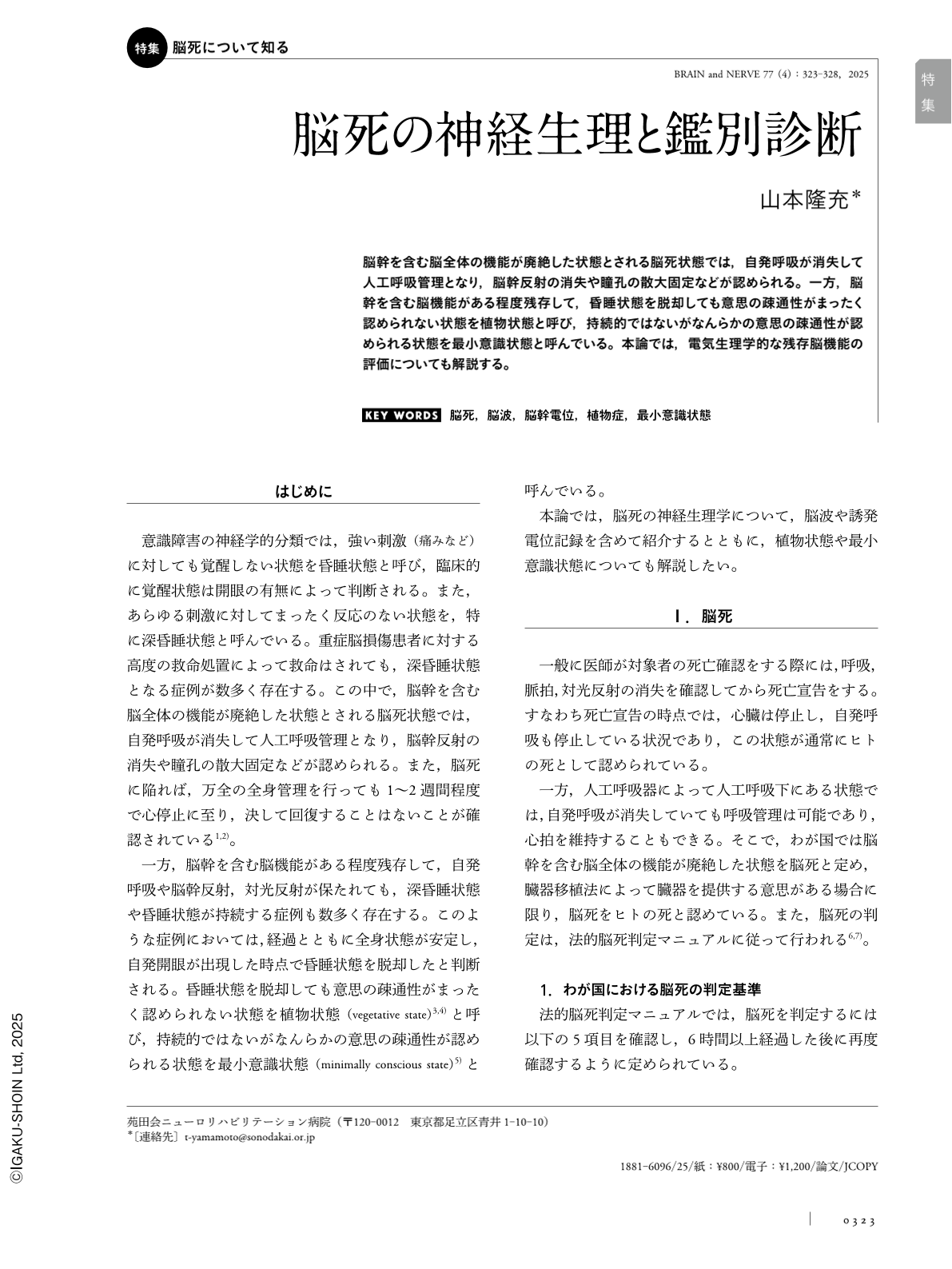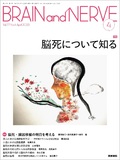Japanese
English
- 有料閲覧
- Abstract 文献概要
- 1ページ目 Look Inside
- 参考文献 Reference
脳幹を含む脳全体の機能が廃絶した状態とされる脳死状態では,自発呼吸が消失して人工呼吸管理となり,脳幹反射の消失や瞳孔の散大固定などが認められる。一方,脳幹を含む脳機能がある程度残存して,昏睡状態を脱却しても意思の疎通性がまったく認められない状態を植物状態と呼び,持続的ではないがなんらかの意思の疎通性が認められる状態を最小意識状態と呼んでいる。本論では,電気生理学的な残存脳機能の評価についても解説する。
Abstract
Brain death is defined as the permanent, irreversible, and complete loss of brain function, including the cessation of involuntary activities necessary to sustain life. Brain death differs from the vegetative state (VS) and minimally conscious state (MCS). The VS is characterized by the complete absence of behavioral evidence of self or of environmental awareness; however, the capacity for spontaneous or stimulus-induced arousal is preserved, as evidenced by the presence of sleep-wake cycles. The MCS is characterized by inconsistent but clearly discernible behavioral evidence of consciousness and can be distinguished from coma and the VS by documented evidence of specific behavioral features not found in either of these conditions. Electrophysiological evaluations, including the assessment of the auditory brainstem response, somatosensory evoked potential, pain-related P250 components, and continuous electroencephalography frequency analysis expressed as a compressed spectral array, are useful for the differential assessment of resting brain function in patients in a VS or MCS.

Copyright © 2025, Igaku-Shoin Ltd. All rights reserved.


